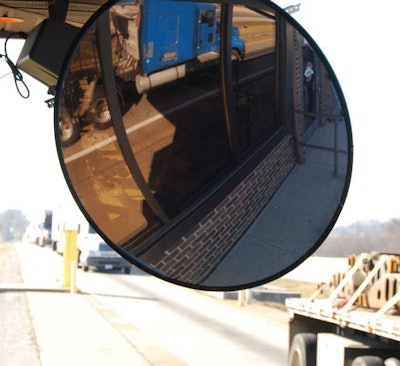
Her full comment is below, but for a kicker ending, she said her fleet has taken to telling drivers that roadside enforcers are wrong about certain enforcement aspects, instead of allowing them to do their job and going on their way:
I used to be able to say to a driver, “Well, we all have bad days, and cops can’t know everything. Just be respectful and get back on the road.” Now I have to say, “Well he’s wrong. Take a picture and send it to me. I’ll spend the next two afternoons researching, compiling and making my case so I can prove to him and his superiors that he doesn’t know what he’s talking about.” On top of this the FMCSA have added so many layers of rules and exceptions to rules over time that combined with other state and federal law, how could your average Officer Friendly be expected to remember and enforce it all? No wonder he’s feeling cranky. It’s overwhelming just to know regulations which apply to our own industry. I’d guess that enforcing the regulations has to be as frustrating and unrewarding as trying to comply with them.
Here’s the full comment:
We dispatch about 100 drivers statewide and currently show three accidents on CSA. One was serious in which the truck driver took evasive action to minimize the risk to a motorist who moved into his lane while digging under the seat of the car he was driving. Thanks to the truck driver the motorist survived the crash. In the second accident our driver stopped behind a blocking accident and was dialing 911 for aid while setting out flares, when a third vehicle hit his trailer from behind. The third accident was another lane encroachment by a motorist in which the truck driver had to maintain his wits to keep from involving anyone else. There was damage but no injuries. The other motorist was cited.
There are no accidents we were at fault for, though it looks as if we have a pretty high crash incidence. I also might point out that there is an unseen and uncounted toll on the psyche of the commercial driver who is involved in a crash. Then to add insult to injury the crash appears on his record in our state without fault designation as well as on the company CSA score, affecting our ability to get him future work.
Related: ATA questions validity of CSA as a measure of safety risk for individual carriers
Due to the CSA changes of December 2012 combining securement into the maintenance basic our maintenance basic increased to over 60. Securement includes anything overweight including axle weight and bridge/weight ratio, rules which vary from state to state. We have worked diligently to adjust our equipment and loading habits to make everybody happy and reduce the number of those kinds of violations, but it’s a difficult area to maneuver.
You could say that CSA changes have affected the intensity with which we have attacked this area, but the things we have changed have had very little to do with securement or maintenance.
Then this past spring one of our terminals began sending me DVIRs daily from one particular Point of Entry scale house and the local area surrounding it in the next state. We sent three to five units a day through that POE all summer, and each truck was inspected usually receiving violations and sometimes being inspected twice or more per day.
The violations were occasionally valid but mostly questionable citing things such as potential hose wear, tire pressure or HOS violations which should not have been applied to local/regional drivers. We were written for the height of a reflector from the ground that has been in the same place on all of the equipment for years and for a loose extinguisher because the driver hooked a glove on the fastener and knocked it loose while getting his tools during an inspection. As is policy, the night maintenance crew addressed each violation nightly right down to replacing the fastener on the errant extinguisher hanger and moving all of our reflectors up an inch, but violations were found at that POE on the same equipment and drivers each day.
Two drivers were told that we were being singled out for challenging an earlier OOS violation at that POE and getting it removed. The rumor was believable since it was the only place in four states we were being inspected and issued violations daily (though it was the most inspection-prolific summer we have ever had). Thankfully, the harassment at the one POE dropped off in October and inspections dropped to almost nil everywhere during September, even though we were busier than ever.
Heres the thing: A company score is way too easily skewed under the current system. CSA is punitive, not helpful to those companies and drivers who strive to BE safe, not just LOOK safe according to CSA. It grants power to punish without opportunity for fair and objective appeal. It sets law enforcement and trucking in opposite corners of the safety ring, so they are sure to come out swinging instead of encouraging an environment of cooperation.
I used to be able to say to a driver, “Well, we all have bad days, and cops can’t know everything. Just be respectful and get back on the road.” Now I have to say, “Well he’s wrong. Take a picture and send it to me. I’ll spend the next two afternoons researching, compiling and making my case so I can prove to him and his superiors that he doesn’t know what he’s talking about.” On top of this the FMCSA have added so many layers of rules and exceptions to rules over time that combined with other state and federal law, how could your average Officer Friendly be expected to remember and enforce it all? No wonder he’s feeling cranky. It’s overwhelming just to know regulations which apply to our own industry. I’d guess that enforcing the regulations has to be as frustrating and unrewarding as trying to comply with them.
Click here to read Jones’ full write-up, along with more comments under the post.











